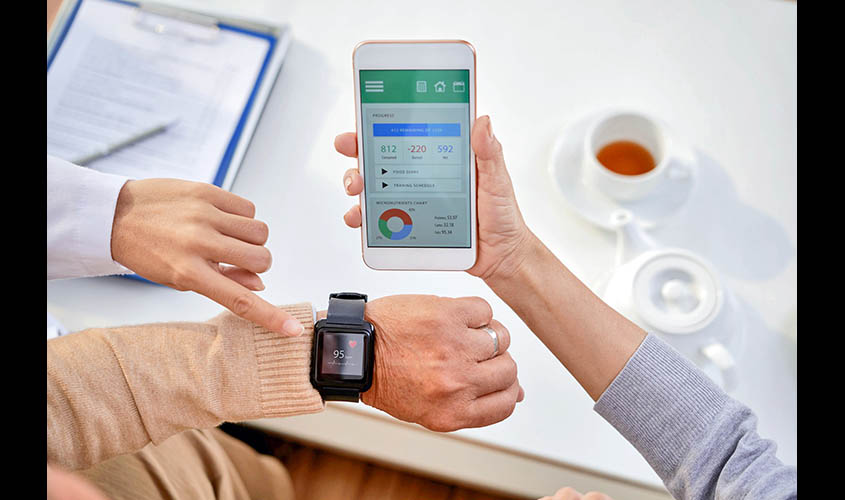The future of India’s healthcare ecosystem depends on how soon cutting-edge products like portable testing devices, low-cost surgical tools and remote patient monitoring gadgets are introduced here.
Medical devices and equipment form a significantly essential part of healthcare delivery. Constant innovation and technological advancement in the field of medical devices is crucial to ensuring the goal of universal healthcare. Medical devices are essential for accurate and timely diagnosis, safe and effective prevention, quality treatment as well as rehabilitation. World Health Organisation recognises that the achievement of health-related development goals is dependent on proper manufacturing, regulation, planning, assessment, acquisition, management and use of quality medical devices.
The medical devices sector consists of a wide array of tools and equipment that help clinical practitioners deliver quality healthcare effectively and save crucial lives. Medical devices consists of diagnostics imaging, IV diagnostics, consumables, patient aids, equipment and instrument, ortho and prosthetics, dental products and other devices, such as patient monitors, oxygenarators, ECG etc. Each one of these categories is crucial to quality healthcare delivery. The Indian medical devices market is expected to grow to $50 billion by 2025. India is currently the fourth largest medical devices market in Asia after Japan, China and South Korea.
Improving healthcare outcomes
Constant improvement and technological advancement in the field of medical devices and equipment has helped doctors improve clinical outcomes and quality of healthcare delivery. Increased use of digital technology is driving a new revolution in the medical devices sector with greater focus on improving delivery, user experience and bringing down healthcare costs. Following is a breakdown of areas where constant innovation in medical devices industry is helping India achieve better health outcomes.
Real-time diagnosis
Thanks to innovation and technological advancement, real-time diagnostic tools have emerged as an important element in fighting infectious diseases. Classical detection methods, such as culture and immunoassays offer accurate results but the time taken in obtaining results is often crucial time lost in treatment. Rapid detection tools are expected to play a significant role in ensuring better treatment of communicable diseases such as TB. Overall, improvement in technology has also improved the accuracy of screening. Portable/point-of-care devices is another important category that has made it possible to improve diagnostic mechanisms at the primary healthcare level, provide care at home and resulted in improved health outcomes and patient satisfaction. Point-of-care testing allows the patient to get his diagnoses in a doctor’s clinic, at a health camp, an ambulance or even at home as these are portable devices that can be easily transported and offer a reliable alternative to laboratory testing in places where hospitals and labs are in short supply. It also improves the access to quality healthcare in underserved and remote regions, while also making it possible for patients to avail treatment outside traditional healthcare facilities.
Reducing healthcare costs
Technological advancements in the devices and equipment sector also play a significant role in reducing healthcare costs which is critical to make healthcare services more affordable to the masses in India. New-age surgical equipment has enabled doctors to treat highly complex and critical cases, and reduce the length of extended hospital stays. For example, advancements in laproscopic surgery have increasingly made it possible to perform procedures such as angiography, stenting and spine surgery easily with improved outcomes and reduced length of hospital stays. This has tremendously helped in lowering costs of treatment.
Similarly, with the onset of the era of remote monitoring and devices to help better manage chronic diseases, the overall healthcare costs are bound to come down over a period of time.
Remote patient monitoring
Remote monitoring is the new buzzword in the medical devices sector. With rise in incidence of chronic diseases and an increasingly ageing population, there has been a rise in demand for medical devices and tools that can monitor patients continuously, more effectively and reduce the need to visit clinics and hospitals. A growing interest in IoT-driven healthcare services and wearable medical devices is an emerging trend of our times. Using cloud-based platforms these devices can alert doctors of important changes in vital signs in a patient.
These advancements in health-screening devices have enabled patients to monitor their health conditions at home, reducing the need for hospital visits and bringing down the pressure on the over-burdened healthcare centers.
Boosting local manufacturing
While technological advancements in the devices sector are expected to play a critical role in improving healthcare outcomes, it is important that appropriate measures are initiated to ensure greater affordability and accessibility. In a nutshell, improving the ecosystem governing the sector is the need of the hour. This includes improving regulatory mechanisms, quality testing as well as incentivising innovation in the sector. Also important is the need to have a more congenial tax environment. GST on medical devices currently stands at 12%. On the other hand, customs duty is low. This tax policy negatively impacts indigenous production and supports imports, which is counter-intuitive to the “Make in India” initiative. Notably, imports constitute 75% of the industry sales of medical devices in the country while local manufacturers mostly produce products in the lower end of the value chain. The government must consider revising its tax policy for devices to lower the GST while increasing the customs duty to help local manufacturers gain a larger share of the market. This will also help them manufacture products at more affordable costs.
The Make in India initiative presents a platform for the sector to revisit the operating model, identify key imperatives for growth and explore possibilities for creating a step change in the medical devices sector. This in turn, allows Indian manufactures to provide affordable options for crucial equipment, such as CT scans, catheters, dialysis equipment and many more.
The author is founder and director, ColMed

